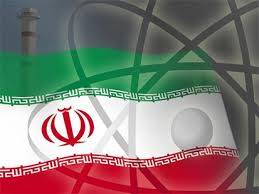As the deadline of March 31st approaches closer, negotiators from Iran and so-called P5+1 countries (US, UK, France, Russia, China and Germany) make desperate attempts to bridge gaps and reach a nuclear deal. US Secretary of State John Kerry and Iran Foreign Minister Javad Zarif are also attending the ongoing session in Geneva. Western negotiators seek to strike a deal that would ensure that Iran does not develop a nuclear weapon. While Iran has maintained that its controversial nuclear programme is for civilian use only, others are not at all convinced.
According to the report released by The International Atomic Energy Agency (IAEA), the agency “remains concerned about the possible existence in Iran of undisclosed nuclear-related activities involving military-related organisations, including activities related to the development of a nuclear payload for a missile.” It goes on to state that since Iran has failed to grant access to requested information and sites and answer serious questions raised by the IAEA, “the agency is not in a position to provide credible assurance about the absence of undeclared nuclear material and activities in Iran, and therefore to conclude that all nuclear in Iran is in peaceful activities.”
It is not clear whether the proposed agreement, which has so far been kept under wraps by negotiators, would compel Iran to cooperate with the IAEA. Since the possibility of presence of secret sites and nuclear material in Iran cannot be ruled out, western negotiators would be taking a giant leap of faith by entering an agreement and providing relief from international economic sanctions currently imposed on Iran. The US Congress is already set to pass a bill seeking imposition of additional sanctions on Iran if talks fail. Regional powers such as Israel, Saudi Arabia and other Arab countries have been opposed to negotiations since day 1. They are convinced that Iran’s ultimate goal is to develop a nuclear weapon – a view shared by many in the US, Europe and elsewhere – and they too would be compelled to develop nuclear bombs of their own if western negotiators fail to prevent Iran. Amidst such mistrust and numerous valid concerns, it is unlikely that a breakthrough will be achieved.
Thursday, April 18, 2024
Iran’s Nuclear Programme

Jailed Myanmar leader Suu Kyi moved to house arrest
April 18, 2024
Jahangir Khan PSA Satellite Squash Series strats
April 18, 2024
Pakistan women face West Indies women in first ODI today
April 18, 2024
Asad, Amir reach PTLA Junior National Tennis semis
April 18, 2024
Rail Revival
April 17, 2024
Addressing Climate Change
April 17, 2024
Saudi Investment
April 17, 2024
Political Reconciliation
April 16, 2024
Pricing Pressures
April 16, 2024
Workforce inequality
April 17, 2024
New partnerships
April 17, 2024
Shikarpur crisis
April 17, 2024
Peace quest
April 17, 2024
Democratic harmony
April 16, 2024
ePaper - Nawaiwaqt
Advertisement
Nawaiwaqt Group | Copyright © 2024





